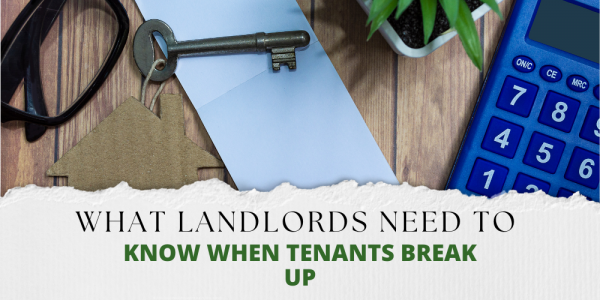CLICK HERE FOR YOUR FREE MEDWAY PROPERTY NEWSLETTER
Inflation (and recessions) can be nerve racking for people and their hard-earned savings and wealth.
Yet there are six reasons which make investing in private rental properties a potentially wise investment in these changeable times.
This article looks at how investing in Strood property could help you 'hedge' against inflation and protect your savings and wealth against the possible recession.
The cost-of-living predicament is threatening the budgets of many Strood householders.
Inflation is running at 7.8%, yet the best savings rates in the market are only 2.75% (because of low Bank of England interest rates). This means that the value of people’s savings is falling fast.
To add insult to injury, the possibility of a recession on the horizon could add another nail in the coffin of people’s wealth and savings.
Looking back at the last recession (ignoring the 2020 Covid recession), the Stock Market (FTSE index) dropped 40.1% during the Credit Crunch (2008/9) - scarcely a soothing thought if you worry about a recession looming in the next couple of years.
A recession can have a catastrophic impact on household budgets, as a weaker economy characteristically means that salaries drop, and people get made redundant.
So, why do I suggest Strood rental properties will help to
protect your wealth and hedge against inflation?
Strood rentals aren’t perfect, yet in many ways, they go a long way to help – let me tell you why.
One of the most significant benefits of investing in residential property is to hedge against inflation. An ‘inflation hedge’ is an investment that defends against the decreased purchasing power of your money that results from the loss of its worth/value due to inflation.
The last time the UK suffered high and persistent inflation was the 1970s.
In 1973, the average British house was worth £9,942. In 1980, that same house was worth £23,287. If the same £9,942 had been invested instead in the stock market in 1973, it would have been worth £19,384 in 1980.
So how did that compare to inflation?
Neither property nor the stock market beat inflation in those seven years (as the goods and services of that £9,942 in 1973 had risen to £25,897 by 1980).
But investing in the stock market between 1973 and 1980, that stock market investor would have lost 25.2% of their investment in 'real terms’, compared with only 10.1% for property investors.
However, there was the bonus of seven years’ worth of rent!
To give you some idea of what that would be worth in today's figures (even if the rent didn't go up during that time frame) ...
The average Strood landlord will earn £89,040
in rent over seven years.
Rental properties have repetitive, regular monthly income, whilst dividends from the stock market are dependent on there being profits which, in a recession, can be hit and miss.
Existing Strood landlords know that the rents their rental properties achieve don’t historically decline during recessions in the medium term.
In 2008, Strood rents dipped by 5.2%, yet they soon
bounced back a year later.
And even if average rents do go down, every rent is fixed at the start of the tenancy. Also, it is infrequent for a tenant to negotiate a reduction in rent mid-tenancy even if average rents did drop.
Property prices sometimes fall during recessions.
In the 2008 Credit Crunch recession, Medway
property values dropped 22.2%.
Dropping from £170,113 at the peak in December 2007 to £132,299 in May 2009 (before they started to rise again).
Yet as I stated above, the Stock Market dropped 40.1% with the Credit Crunch. Also previously, the Stock Market dropped 36% on Black Monday before the early 1990’s recession and 55.3% in 1974.
Which sort of drop would you prefer?
(Almost) guaranteed rental payments. Insurance can be taken out for rental payments (you can’t get that on stocks and shares). Also, the government will cover most (or all) of the rent when someone is made redundant and needs to apply for social security.
For those Strood landlords who take a mortgage, inflation can be a benefit. The first is the effect of inflation on mortgage debt. As Strood house prices rise over time, it reduces the loan to value percentage of your mortgage debt and increases your equity. You will receive a lower interest rate when you re-mortgage in the future because of the lower loan to value percentage.
Also, as the equity in your Strood rental property increases, assuming you fix your mortgage, your payments stay the same.
Popular posts like this

What Landlords in Kent Need to Know When Tenants Break Up
 By The Dockside Property Services Team on 12th Jan 2025,
By The Dockside Property Services Team on 12th Jan 2025,
As a landlord, you may encounter situations where tenants experience a relationship breakdown. While this can be a difficult time for...

How to Manage Property Viewings During the Festive Season
 By The Dockside Property Services Team on 22nd Dec 2024,
By The Dockside Property Services Team on 22nd Dec 2024,
Tips for scheduling and conducting property viewings effectively during the Christmas holidays. Selling your home during the festive season comes with its...

How to Retain High-Quality Tenants in Kent During the Winter Months
 By The Dockside Property Services Team on 15th Dec 2024,
By The Dockside Property Services Team on 15th Dec 2024,
Dockside Kent The winter months can be a challenging time for landlords in Kent, with colder weather and shorter days adding potential...

The Medway Baby Boomer Housing Paradox: Wealth in Property, But Nowhere to Go
 By The Dockside Property Services Team on 14th Dec 2024,
By The Dockside Property Services Team on 14th Dec 2024,
The Medway Baby Boomer Housing Paradox: Wealth in Property, But Nowhere to Go For decades, baby boomers in the UK have been the quiet beneficiaries of a...



Share this with
Email
Facebook
Messenger
Twitter
Pinterest
LinkedIn
Copy this link